Coronavirus doctor's diary: Karen caught Covid - and took it home
- Published
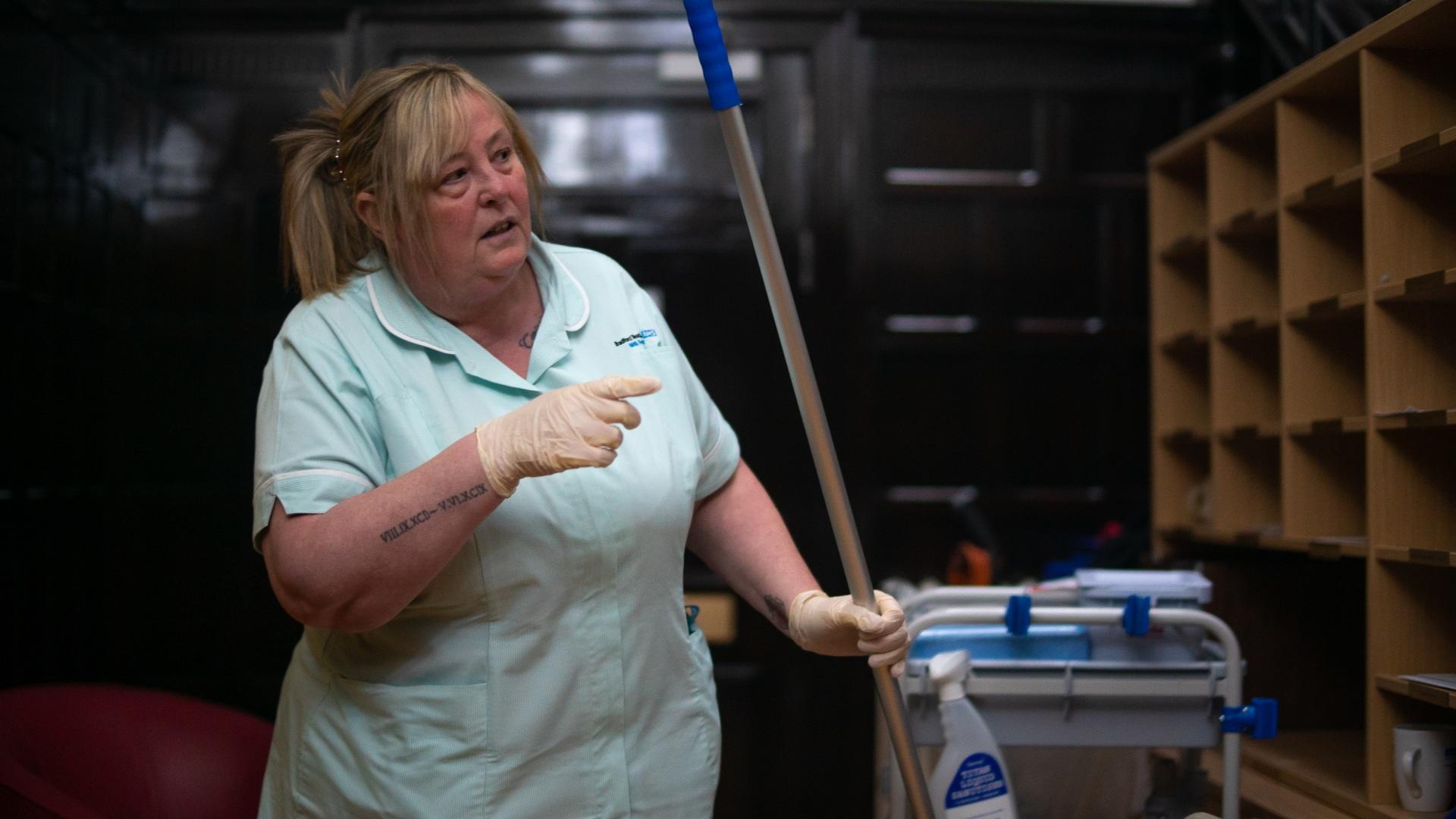
Everyone has heard about doctors and nurses catching Covid-19 but some of the worst affected hospital staff have been cleaners and porters. Dr John Wright of Bradford Royal Infirmary tells the story of a cleaner who became ill, and is now stricken with guilt for taking the virus home.
The first person I see early each morning when I arrive at the hospital is our cleaner, Karen Smith. During 10 months of uncertainty, Karen has been the one constant, apart from a few weeks in spring, when she was ill with Covid-19.
Usually Karen cleans the offices of the hospital's Institute for Health Research, but in the first wave of the pandemic she was called to the Covid wards. It was a frightening time for everyone, but Karen volunteered for an extra shift on Good Friday as there was a staff shortage - and on that day she thinks she was infected.
We know that working in hospitals increases your risk of infection by a factor of three, external, but this risk is not evenly spread. Antibody tests carried out in many NHS hospitals over the summer showed it was not the ICU consultants or infectious "red zone" clinical staff who had the highest rate of infection, but porters and cleaners working in those areas. Their risk of infection was double that of their clinical colleagues, external.
This heightened risk for hospital staff also applies to their household contacts.
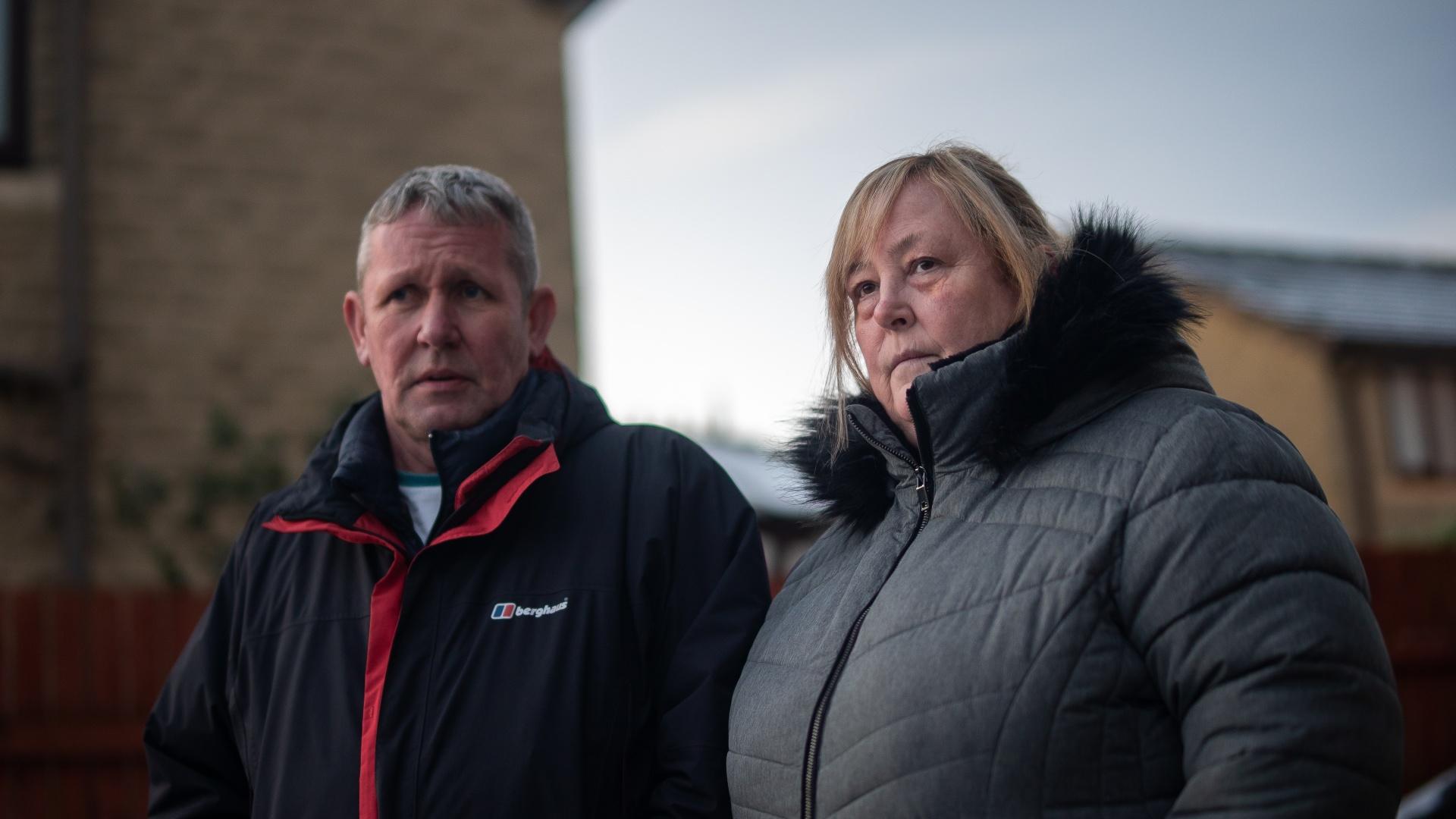
Karen and her husband, Mal
As she cleaned the hospital in April, Karen was scared not for herself, but for her family. She and her husband, Mal, had moved into a caravan in Mal's parents' garden, while his mother was ill with cancer - and they stayed on after she died, to support Mal's 80-year-old father, Malcolm. Mal, a hospital porter, was shielding because he has chronic obstructive pulmonary disease, and Malcolm senior was clearly vulnerable because of his age.
Stopping work, however, was not a luxury Karen could afford. And unlike some hospital staff who were housed in hotels to protect their families, she went back home every night.
She became ill towards the end of April, followed by Mal at the beginning of May. The weather was hot, she remembers, as they coughed and wheezed in the caravan.
"It was like being in a tin box," she says. "I got Covid and couldn't get over it properly. And then Mal got it and his was on another level compared to mine - and then his dad got ill, and that was a different ball game altogether."

Front-line diary
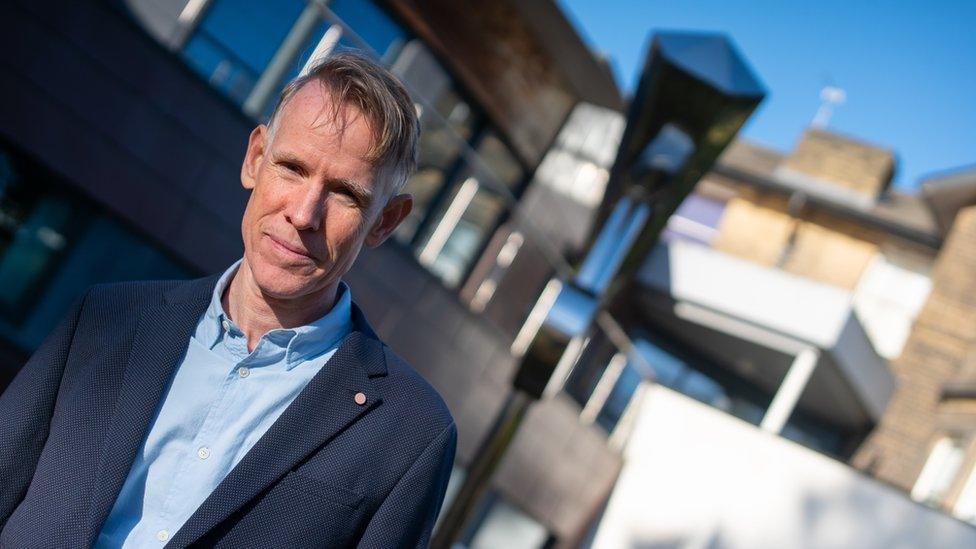
Prof John Wright, a doctor and epidemiologist, is head of the Bradford Institute for Health Research, and a veteran of cholera, HIV and Ebola epidemics in sub-Saharan Africa. He is writing this diary for BBC News and recording from the hospital wards for BBC Radio.
Listen to Karen's story in the Coronavirus Front Line, on BBC World Service, from 2 February
Or read the previous online diary entry: 'Close to death from Covid, I asked them to save my baby'

The couple had to go inside the house to cook and to use the bathroom but did their best to keep away from the elderly Malcolm, who would go into a different room whenever they entered.
"We tried so, so hard not to give it to him - but then he got ill and he just went to his bed. Honestly, he was just like a little child, under the quilt looking all bewildered. He started with the shivers and we rang 111. They said to bring him to Accident and Emergency to get him tested, and we couldn't believe it when it came back positive," Karen says.
Later, he was brought into hospital. I have fond memories of meeting Malcolm on the ward after he was admitted, acutely struggling with symptoms of cough and shortness of breath from his Covid infection. He was a kind and gentle man, stoical and patient.
He was adamant that he had been careful to keep his distance from Karen and Mal in the house, but admitted wandering over to show them articles in the Telegraph and Argus - Bradford's daily newspaper - whenever I was mentioned in it. I felt strangely culpable that I might have been the cause of the transmission.
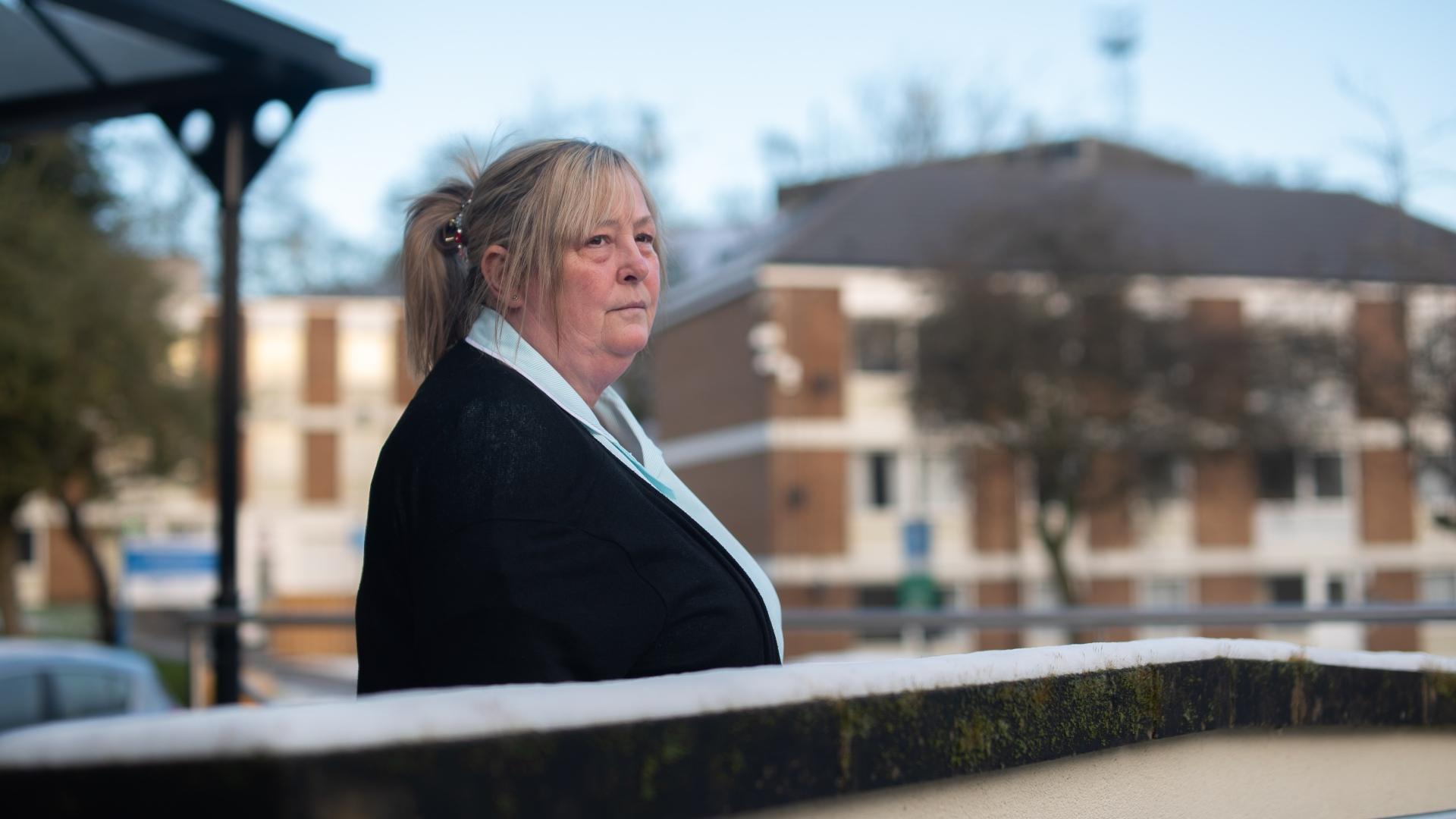
Malcolm made a good recovery and was eager to be discharged. But Covid is an unpredictable illness, and it can happen that improvements in a patient's condition are followed by a sharp deterioration. And this is what happened with Malcolm soon after he arrived home.
"He didn't want to go back into hospital - he said to get him some Tunes because they would help him breathe," says Karen. "But nothing could help him, he was so, so ill. We had to say to him, 'No, you've got Covid and you need proper medical care.' He was such a lovely man, bless him."
Malcolm was readmitted after two nights at home and died on 28 May.
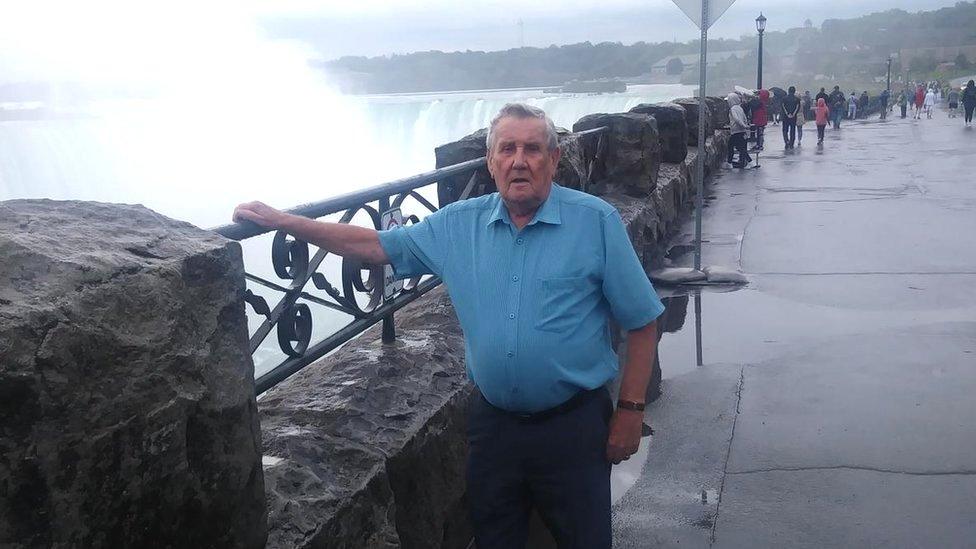
Malcolm as he turned 80, visiting his brother in Canada
Karen returned to work. But like many people who have had this illness, she has been suffering the after-effects, both physically and mentally. She's now on an inhaler for breathlessness, can barely taste anything seven months later, and is constantly tired. She is also receiving medication for anxiety because of the fear that she will have to return to the Covid wards, where potentially she could get ill again.
And in her case there is the added pain of having lost a loved one, mixed with feelings of guilt.
"When I start to think about him the tears come and sometimes I'll be crying almost all day - cleaning and crying. If I'm having a bad day, I won't be able to talk," she says.
"The guilt is always there, as I'll never know for sure where he picked it up. Mal's dad didn't set foot out of the door, and so in my head I feel such guilt, because we had to go into the house, we didn't have any choice. I go over it all but it's hard to escape from, because I got it, Mal got it and then his Dad got it. Deep down I think that's what's happened, and it will take time to come to terms with."
Karen has been referred for counselling, but there is a long waiting list.
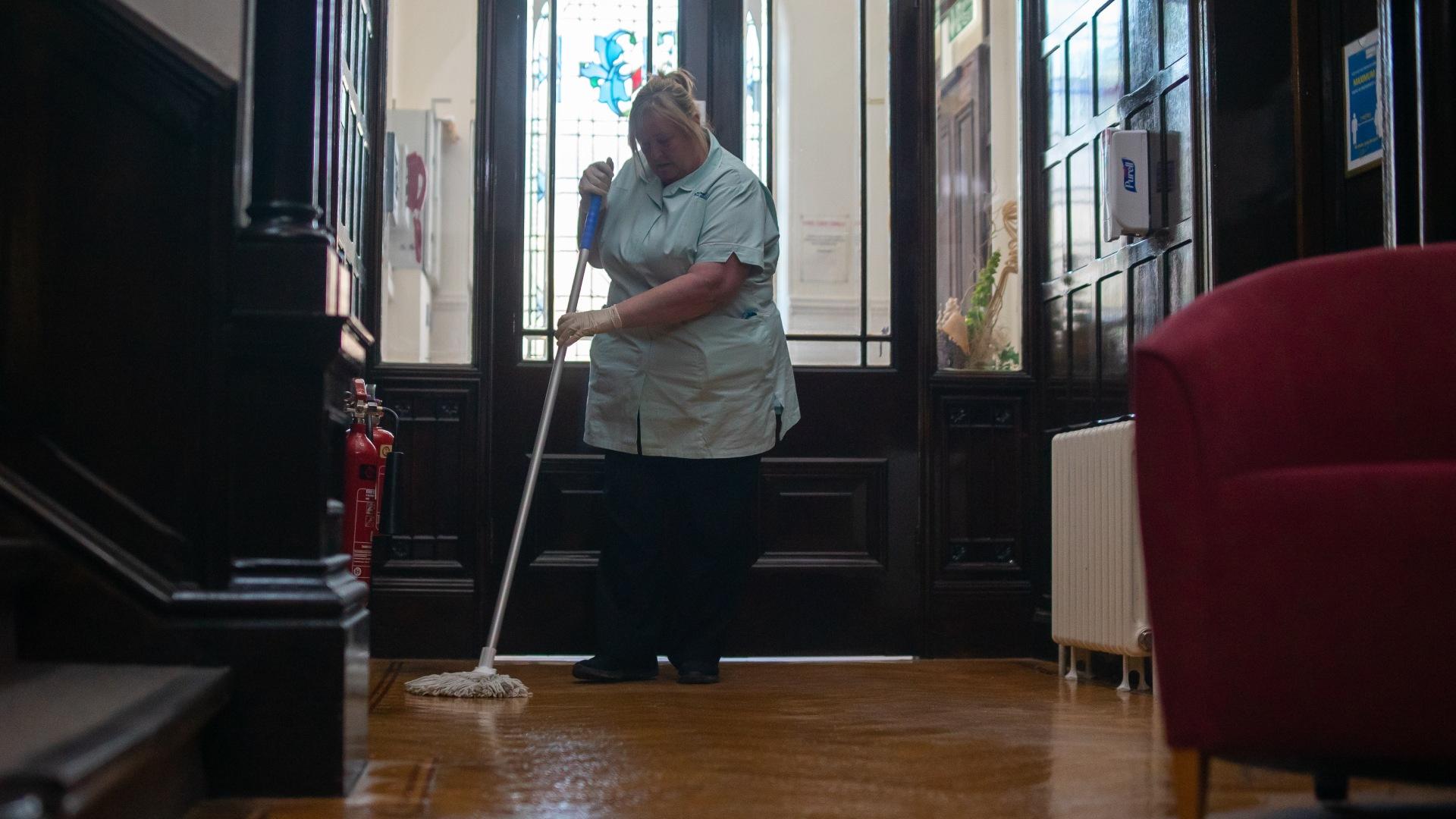
Both Karen and Mal also had to wait for the vaccine, though both had it on Wednesday. This was a huge relief for Karen, as anything that reduces her chance of reinfection also helps her cope with her anxiety. If NHS trusts are serious about following the science then arguably they should be vaccinating cleaners and porters first.
The fear of transmitting the virus to our loved ones at home is the ghost that haunts all front-line staff. Many went into isolation during the first wave, but this was never a sustainable approach, and with a virus that is so contagious and an environment in which it is so prevalent, transmission to family members is unfortunately common.
Karen and Mal personify this occupational risk, and its potential deadly impact.
Follow @docjohnwright, external and radio producer @SueM1tchell, external on Twitter